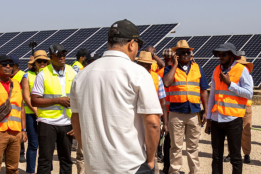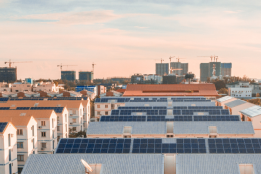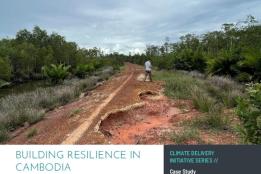Agenda
• Carlos Alberto Jacome Montenegro, Regional Senior Energy Specialist, Inter-American Development Bank
• Johanna Christine Galan, Energy Access Specialist, Energy Sector Management Assistance Program (ESMAP)
SPEAKERS
Energy Division, Inter-American Development Bank
Carlos Alberto Jacome Montenegro is a Regional Senior Energy Specialist from the Energy Division of the Inter-American Development Bank (IADB). Since 2018 he is an Energy Specialist in Nicaragua and the Regional Coordinator for energy issues in Central America. Carlos has been team leader of a wide range of Operations including investment projects mainly in electricity access and modernization of hydro power plants and programmatic operations for reform power process, and technical cooperations. He previously worked for seven years at the United Nations Development Programme (UNDP) as Technical Coordinator and Project Manager in the design and construction of the first minigrids for the Galapagos Islands, using renewable Energy sources wind and photovoltaic. Carlos was responsible for the implementation of the first microgrids using wind, photovoltaic energy, and pure vegetable biofuel from Jatropha supporting the Government’s plan to eradicate the use of fossil fuels in the Galapagos Archipelago.
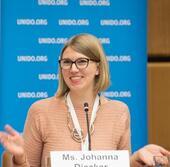
Energy & Extractives Global Practice, World Bank
Johanna is co-managing the World Bank/ ESMAP Lighting Global program and provides cross-support to several World Bank lending operations. Prior to joining ESMAP as an Energy Access Specialist, she supported the Lighting Global team as a senior off-grid consultant. Beforehand, Johanna worked with GOGLA, the industry association for the off-grid solar sector, as a policy director. As the association’s policy director, she was part of the management team, led the advocacy work as well as the teams working on policy engagement, access to finance, consumer protection, and impact research. Johanna holds a Magister in Political Science and a Bachelor in International Development from the University of Vienna, and is a MBA candidate at Warwick Business School.
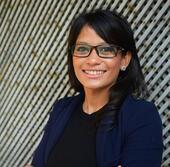
Climate Investment Funds
Madu Selvakumar comes from 13 years of development finance experience in infrastructure, clean energy, climate change, and FCV-response. She leads the CIF’s Climate Delivery Initiative and several other workstreams to map, model, and assess the social and development impacts of investments, alongside providing design and development support for the Accelerating Coal Transitions Program. Prior, she was with IFC’s Sector Economics team, focusing on infrastructure and natural resource investments in EMENA, and on infra advisory services globally. She holds BA in economics and mathematics from the University of Southern California, and an MSc in Development Economics and Econometrics from SOAS, University of London.
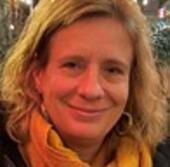
Energy and Extractives Global Practice, World Bank
Dana Rysankova is the Lead Energy Specialist covering energy access issues in Eastern and Southern Africa. Prior to this assignment she was the Global Lead for Energy Access. In both roles she has been providing strategic and operational guidance to scale-up World Bank’s energy access interventions. Dana has been at the World Bank for nearly two decades, spearheading multiple projects in Africa and Latin America and Caribbean regions. She has focused on energy access and distributed renewables. For many years she was also coordinating Lighting Global and other energy access activities at the Energy Sector Management Assistance Program (ESMAP).
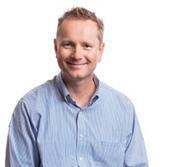
Independent Evaluation Group, World Bank
Rasmus Heltberg is a development economist and evaluator with experience from different parts of the World Bank, including the CIF. As the Lead Evaluation Specialist at the Independent Evaluation Group (IEG) of the World Bank Group, Rasmus has led influential evaluations on World Bank strategic priorities as well as initiatives to revamp evaluation systems. His research has been published in a variety of interdisciplinary development journals. Rasmus holds a Ph.D. and M.Sc. in Development Economics from the University of Copenhagen and a M.Sc. in Quantitative Development Economics from the University of Warwick.
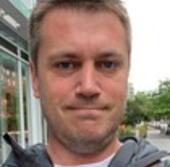
Energy & Extractives Global Practice, World Bank
Federico Qüerio is a Senior Energy Specialist based in the Kampala (Uganda) country office at the World Bank. He is leading the implementation of rural electrification projects in Uganda and Rwanda, including the Renewable Energy Fund project in Rwanda, where he also contributed to its design. Prior to this assignment, he coordinated the Clean Technology Fund (CTF) and Scaling-up Renewable Energy Program (SREP) at the World Bank. He holds a Master’s degree in industrial engineering, and a Master’s degree in international economic and international development.


